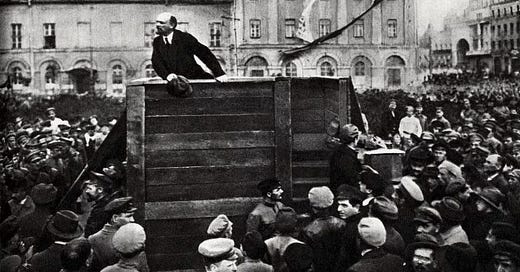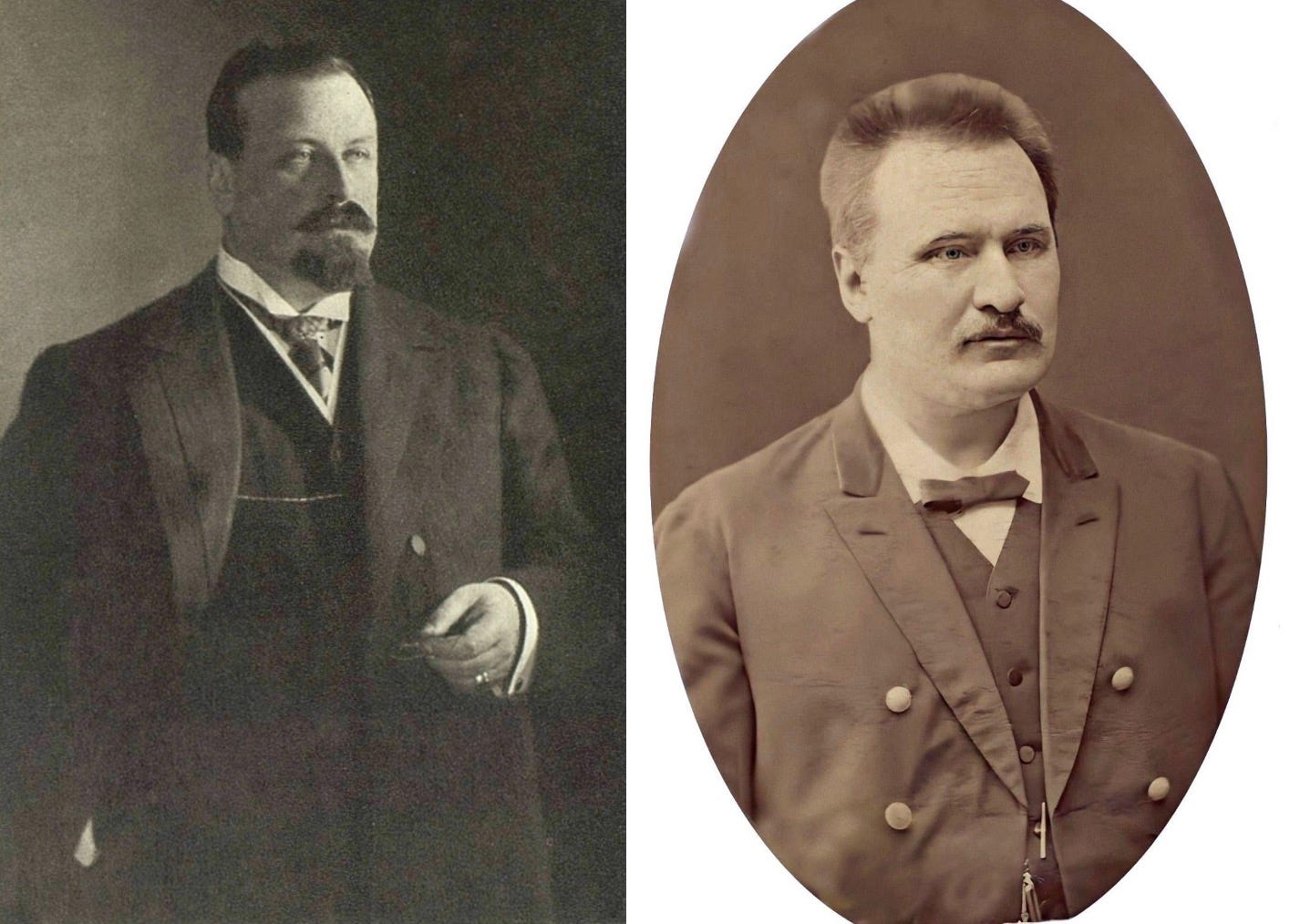Lenin was not the first man of modernity
He was the last man of antiquity
I think no other career in modern history illustrates all the power, usefulness and practical applicability of classical education than the career of Vladimir Lenin. Like, his whole style inspired by Cicero, his Russian hammering as if it were Latin, his values inspired by those of the Roman world, he was the perfect fit for the job.
And yet, it is exactly this classical character of his upbringing that makes him so difficult to understand by our contemporaries. The first, and perhaps, most important thing you must understand about Vladimir Lenin is that he belonged to a culture that is long dead, and was shaped by the conditions that no longer exist.
There may be a certain irony in the fact that it was the classics-trained, and Latin authors-inspired Lenin who was to abolish the classical education in the country. But this - I believe - is more of a rule than an exception. For the forefathers of a new culture are themselves the products of the old one.
***
At the age of nine, Lenin enrolled into a classical gymnasium in Simbirsk, on the Middle Volga. It was a rigorous preparatory school that trained a handful of promising students for the future university track. It taught a broad range of subjects, including the natural sciences1, mathematics, modern languages, theology, even, but, of course, centred around Latin and Greek2.
Let me give you a quote from the memoirs, written by a Lenin’s classmate who spent years sitting behind the same desk as Lenin and, therefore, could know him reasonably well. Their professor,
“… would bring us the works of Ovid, Sallust, Caesar, etc, and would choose someone to read [= and translate] them à livre ouvert… He would help with translation, whenever necessary, and also explain the content of what we were reading in such entertaining and picturesque way, that we, eventually would willingly volunteer to be readers. Instead of bore, we got an interesting and lively course introducing us into the ancient Roman history and literature, all based on the primary sources. By the end of the 6th class, we were easily reading the classic Roman authors, and had all the necessary command of grammar”
Now who was the author of memoirs, you may ask?
It was Alexander Naumov, who would later make a brilliant political and bureaucratic career, eventually becoming a minister in Tsar’s government
And who was the professor in question?
It was Fyodor Kerensky, the Latin teacher, and the director of gymnasium
[Later, his son Alexander, would become the leader of Provisional Government, will hold the supreme political power over Russia - for a brief period of time - and then will be overthrown by Lenin in the October Revolution
You see, the circle of educated elite in Russian Empire was narrow. Very, very narrow, so they constantly cross each other’s way in the most incomprehensible way]
Left - Naumov. Lenin’s classmate, later - minister. Right - Kerensky, his professor of Latin
And if that elite was narrow, that is partially because the process of selection was incredibly tough.
Back then, school used to be hard. Like, really, unironically, hard. Unlike the modern school, it applied the merciless Darwinian pressure, selecting the failures out. Out of 55 students enrolled in Lenin’s class (gymnasium), only 7 graduated in time. The rest dropped out3.
So, 87% drop out rate
Grade inflation in American colleges. Universities are terrified to fail their students
In olden days, they used to be unafraid
Keep reading with a 7-day free trial
Subscribe to kamilkazani to keep reading this post and get 7 days of free access to the full post archives.





